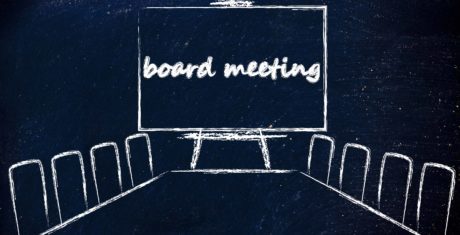By Chris Kotur (WCLP’94), LV’s Leader in Residence
Don’t stop learning about good leadership during crises…we need to draw on all we know to offer confidence and hope right now and afterwards…
Many thousands of Victorians have come through successive waves of trauma and crises, serial natural disasters and years of adapting to consequences of far too many compounding bad surprises. Victorians already know a lot about unwelcome events that permanently change lives and force people to attempt recovery afterwards…
The pandemic is another one of those events and it’s a major opportunity to share some of what Victorians can teach us about resilience.
Many in the Leadership Victoria community are at the forefront of leading the major adaptive changes we’re going through and I want to acknowledge and thank each one of you for working so hard to help us through really difficult change.
I also want to acknowledge and share the sadness of those who have lost jobs and I hope that doesn’t mean we’ve lost confidence in the future.
In crises it’s easy to forget what we as leaders already know and are able to do.
If you think its valuable I can share some of the insights I’ve gained from facilitating thousands of conversations and reviewing advice, ideas and suggestions from the many government inquiries, three Royal Commissions and countless consultations that I’ve been part of – learning so much from those who experienced crises, lost so much and yet came through the other side – so we can keep learning together.
Firstly, I predict we’ll be better at getting through this awful time than it seems right now as we try in real time, to understand and readjust to the consequences of a pandemic.
“After a while I learned that I had to give myself permission to pause, take in what had happened and readjust” (Black Saturday)
For Leadership Victoria participants and alumni its time to pause, get on the balcony and draw down every lesson, experience, story, idea and good advice you heard probably thinking you’d ‘come back to that later’. Come back to that knowledge now.
We’re all adapting, unwillingly, awkwardly, too quickly and with little control so remember all you know about adaptive leadership – the theory and practice is solid and it works. (If new to or need to refresh Adaptive Leadership check out the many resources by Marty Linsky, Ron Heifetz whose research and practice advice were developed for just these extraordinarily difficult times).
Reflect on every bit of inspiration and wisdom you’ve heard from presenters and from across your LV network. Every LV encounter is a miniature case study of what to do now and afterwards, when this awful time seems less awful.
We’ve got this. Afterwards people will need us more than ever and that means we can’t stop learning.
Secondly, consider what many Victorians said about maintaining resilience after Black Saturday and the Hazelwood Mine disaster.
“I learned to watch for signs of when I’d had enough and just couldn’t go on. It learned when to say no and just leave for a while, rest, eat, get a hug”
“It was a really emotional time, we were overwhelmed by what we’d lost and grief stopped us from planning for later…It was so tough but I wish we’d been less sentimental and started to get ready for the future more quickly”
It’s not selfish to put yourself first under current circumstances. It’s essential. You won’t be able to hold others in distress if you’re not ok. You’ll need the energy, physical and mental strength that requires down time.
Thirdly, while events are changing quickly we listen (and then only selectively) to leaders whom we trust and who deliver information clearly, consistently, empathetically and with authority.
The amount of information we can take in reduces. We hear what we want to, misinterpret even simple messages and easily fall prey to speculation, scams and conspiracies. A message clear to you can sound like gibberish to someone else.
“I could only hear what people like me and who knew me were saying…(Heazlewood Mine disaster)
Its time to review style and content of communication especially while there’s an information glut and social media, while keeping us connected, adds confusion and noise.
Updates must be frequent, quick, clear and decisive.
Fourthly, nostalgia isn’t your friend.
“After Black Saturday I just wanted Friday back”
“I simply decided to care for people I didn’t know and that meant being gentle with people who did stupid things”
“I wanted my old life back but I had to change the way I think.” (Family Violence)
Your work, workplace culture and relationships with colleagues have already changed even if you don’t know it yet. Current strategic, corporate, business or council plans are now probably irrelevant. Plans for managing risk or emergencies may prove woefully inadequate.
Services, business models and policies are reshaping right now, by forces beyond our control.
The next term of political leadership has already begun because the aftermath of this crisis will continue for a long time. Small NFP’s without deep reserves have already become insolvent.
“After 15 years of daily violence at home I realised I had to stop hoping things would return to the way we were at the beginning and it was time to run…” (Family Violence)
There’s a danger that in dealing with the short, sharp daily emergencies we won’t make time to reflect and learn and plan properly for what comes later.
Try to reserve enough energy and clear thinking to apply foresight right now or ‘afterwards’.
There are so many more lessons, smart, practical ways to lead through to the other side of this crisis and I’ll help you do that if I can.
Chris Kotur (WCLP’94)
LV Leader In Residence




